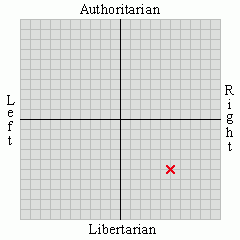When workers take strike action they aren't paid by their employer, their unions give them a subsidy that's meant to make sure they don't lose out financially.
BA crew were paid a whopping (*sarcasm*) £30 a day whilst on strike. RMT probably pays about the same. This works out at £210 for a 7-day working week. For a 5-day week it'd be £150, for 3 days it'd be £90. (Yes, it's easy Maths, but it's handy to see the numbers written down.)
Back in May Thisismoney said Signallers ... earn up to £65,000 a year for working a three-day week, presumably this would be for controlling somewhere really complicated or even, say, the whole of the East Coast Line, which means that very few signallers would earn that much, but using that as an example it works out at an average of, umm, 52 weeks x 3 days = 156 days. Ooh, that's a bit more than £393 a day. So, even if either LUL or TfL gave the unions £30 a day to pass on to the RMT strikers it'd save quite a bit - maybe as much as £360 a day for the highest paid employees.
So Mrs R wonders if we could persuade all the very important union bosses to get their angry workers to go on strike - especially those whose wages are paid out of the public purse? It'd save a fortune.
Worried about the impact on local, regional, and national services? No need!
If the strikes are as successful as the two day walk-out by RMT we wouldn't notice very much, because according to the BBC
BA crew were paid a whopping (*sarcasm*) £30 a day whilst on strike. RMT probably pays about the same. This works out at £210 for a 7-day working week. For a 5-day week it'd be £150, for 3 days it'd be £90. (Yes, it's easy Maths, but it's handy to see the numbers written down.)
Back in May Thisismoney said Signallers ... earn up to £65,000 a year for working a three-day week, presumably this would be for controlling somewhere really complicated or even, say, the whole of the East Coast Line, which means that very few signallers would earn that much, but using that as an example it works out at an average of, umm, 52 weeks x 3 days = 156 days. Ooh, that's a bit more than £393 a day. So, even if either LUL or TfL gave the unions £30 a day to pass on to the RMT strikers it'd save quite a bit - maybe as much as £360 a day for the highest paid employees.
So Mrs R wonders if we could persuade all the very important union bosses to get their angry workers to go on strike - especially those whose wages are paid out of the public purse? It'd save a fortune.
Worried about the impact on local, regional, and national services? No need!
If the strikes are as successful as the two day walk-out by RMT we wouldn't notice very much, because according to the BBC
So it looks as if the trains still worked and nobody really noticed. So, imagine, if you will, if certain high-earners in the public sector took strike action. Would Leeds, for example, grind to a halt without the services of the five-a-day regional coordinator? Would Calderdale be unable to function without the Corporate Marketing Officer? Would the NHS close its' doors to sick people without the protected learning time facilitators?London Underground said there was no disruption to services again despite a strike by maintenance workers.
The action by the Rail, Maritime and Transport (RMT) union began at 1900 BST on Wednesday, in a row over proposed changes to jobs, pay and conditions.
Transport for London (TfL) said services operated as normal despite the walkout on the Northern, Piccadilly and Jubilee lines.
The action ended at 1900 BST on Friday.
....





3 comments:
"When workers take strike action they aren't paid by their employer, their unions give them a subsidy that's meant to make sure they don't lose out financially."
I don't think this always applies though, does it? I've some friends who are public sector workers, and came out of the union because they were constantly called out on one day strikes for which they lost a day's money and a day off their pension.
They weren't compensated by the union - PCS, I think it was.
Union strike pay is triggered only when strike action is for 3 or more consecutive days. Strike pay is derisory, below minimum wage and below UK subsistence levels.
Union bosses never go on strike.
They are nothing more than overpaid agitators and activists trying to justify their high salaries by calling high profile strikes. They were silent while Labour dismantled the UKs manufacturing sector and built up mouthwatering levels of national debt because Labour is their party. They care nothing about the well-being of this country, their only aim is personal gain and an illusion of power.
Workplace legislation, including that of the EU, has made the need for unions irrelevant. They are dinosaurs, clinging to power.
Are they needed at all?
Post a Comment